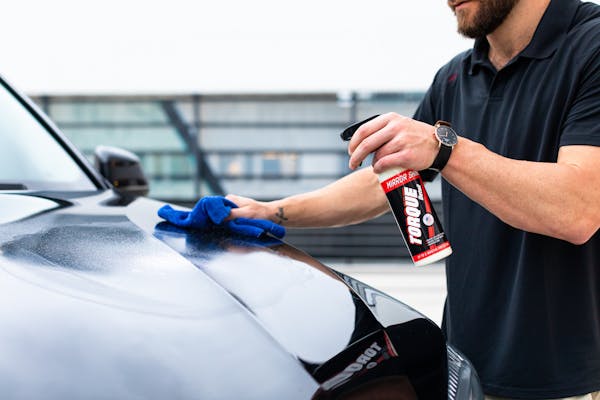Winter’s frigid temperatures can be brutal on your car battery. Car batteries die most often during the winter, leaving their owners stranded. A few simple measures can protect your battery and prolong its life.
Years of expertise and a deep mechanical understanding of car batteries have consistently confirmed that proactive battery maintenance isn’t just advisable, it’s essential.
Check Your Alternator
Your battery might need to be replaced or recharged if the alternator isn’t working properly. If you suspect that your alternator is starting to fail (it can also be caused by corroded battery terminals or a loose belt), it may help to get it checked out before it stops charging your battery altogether.
You can check the condition of your alternator with a voltmeter and a set of jumper cables. First, disconnect the negative terminal from the battery to ensure your safety. Connect the positive side of the jumper cable to the positive terminal on the battery and the negative side to a ground point, says Hines. Find out more at Car Battery Maintenance Winter.
Turn on your engine and rev the motor to about 2000 rpm for 15 seconds, then check the voltmeter reading. It should read around 13.8 to 14.2 volts if the alternator is functioning properly, says 2CarPros. If it’s below that, the alternator or battery is probably bad. You should have it replaced to avoid a complete failure, which could leave you stranded on the road.
Clean Your Battery Terminals
Corroded terminals can inhibit the flow of current from the battery to the engine. This can prevent your car from starting, especially when the temperature drops. This is one of the most common battery issues and it can easily be prevented by cleaning the terminals.
Using a toothbrush and some baking soda (or cola if you prefer), begin scrubbing away the corrosion. You should notice a small chemical reaction to indicate that the corrosion is dissolving.
When you’re done, use a spray bottle filled with water to rinse off the remaining corrosion and residue. Afterwards, use a rag to dry everything thoroughly.
Always remember to disconnect the cables from the terminals in the correct order, and never touch both sides of the terminal at once. It’s also a good idea to examine the point where the cable enters the clamp for signs of excessive wear. This can indicate that the cable needs to be replaced.
Get a Thermal Blanket
Cold weather can take a toll on your battery. It can reduce the battery’s capacity and leave you stranded in the cold if it fails. Corrosion and dust can also build up on the battery and increase electrical resistance, reducing its performance.
The good news is that proper maintenance and upkeep can help your car battery last longer, even in chilly winter conditions. A battery insulator or battery blanket can be used to keep the battery warmer, which helps to prevent corrosion and oxidation on the terminal ends. A regularly-scheduled battery test can also identify any issues that can be addressed before winter sets in.
Finally, parking your vehicle in a garage or other covered area can help protect your battery from colder temperatures. This can be especially helpful if you have to park your vehicle outside during the day while you’re at work. A garage can be a few degrees warmer than the outdoors, helping to preserve your battery’s life and ensure that it can start your car whenever you need it.
Test Your Battery
Having your battery tested with a conductance tester or load test helps you identify weak batteries that may struggle in colder temperatures. These tests simulate the demands of starting the engine, so if you’re having trouble with yours it could mean that the internal cells are losing power at an alarming rate.
If your results show that your battery is still good, keep it protected from parasitic drain (like the headlights left on) by cleaning the terminals with an old toothbrush and a solution of baking soda and water. You should also invest in a battery blanket to help keep the electrolyte warm.
You can also avoid battery failure by driving often and reducing the amount of time that you leave your car idling. You should also disconnect or unplug any unnecessary accessories and park it in a garage to protect your battery from ground moisture, corrosion, and winter temperatures. This will prevent you from having to call for roadside assistance at the worst possible time.


